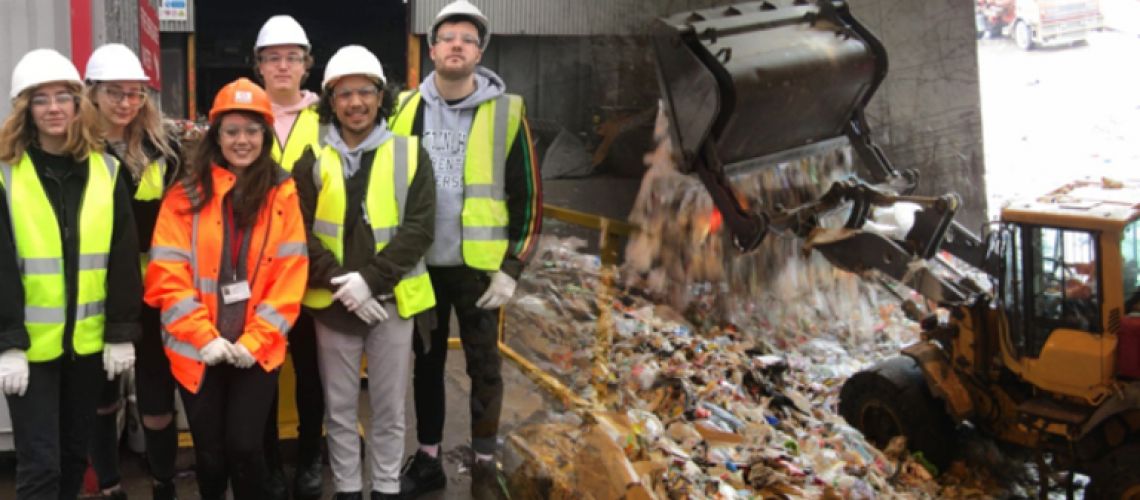EMUWC Open Day
5 Mar 2019
After a significant amount of interest in tours of the Enva Waste Management facilities and in the processes that take place here, we decided to set up a dedicated Open Day for staff and students from the East Midlands Universities Waste Consortium (EMUWC).
On Wednesday 28th November groups from each of the EMUWC institutions (Enva Partnership with EMUWC) came to our site. After a presentation detailing the processes on site and a health and safety induction, a discussion was initiated around the importance of good sustainability knowledge and the implementation of the waste hierarchy at their university and at the waste contractor site.
During the site tour, attendees were shown what some considered a shockingly large scale operation needed to deal with waste from their institution as well as the specifics behind some of the machines and processes needed to sort out the different desired materials. The sophisticated segregation techniques mean 100% of the materials which pass through the facility are diverted from landfill, pushing our customer’s waste up through the waste hierarchy. Materials separated out include; card, polyethylene/plastic film, fines, glass, ferrous and non-ferrous metals, plastic, soft mix paper and residual waste.
Some of the groups of staff and students that attended the our Open Day include:
- Nottingham Trent University students completing final year undergraduate and/or master’s research projects relating to sustainability and waste,
- Committee members of the University of Leicester’s new student run Plan-It Change society,
- Staff members working on the University of Nottingham #WasteNott institution-wide campaign,
- Relevant new staff starters at Loughborough University.
This opportunity allowed more people than any other year to tour our site and to ask practical and topical questions to Enva staff i.e. what happens to their single-use plastic waste? Feedback we had from attendees included that seeing the process and the end product of sorted materials in person really helped to highlight some of the key problems they can help make a difference with in the waste collection and management processes. Attention was drawn in particular to the negative impacts food and liquid waste contamination has on the value of recyclable materials, poor onsite segregation rates and the presence of any hazardous and/or clinical waste wrongly put into non-specialist bins. From this day, the potential for collaborative campaigns around reducing food waste and improving recycling segregation were discussed with staff and students alike who now better understand the importance of what goes in a bin on their site!

